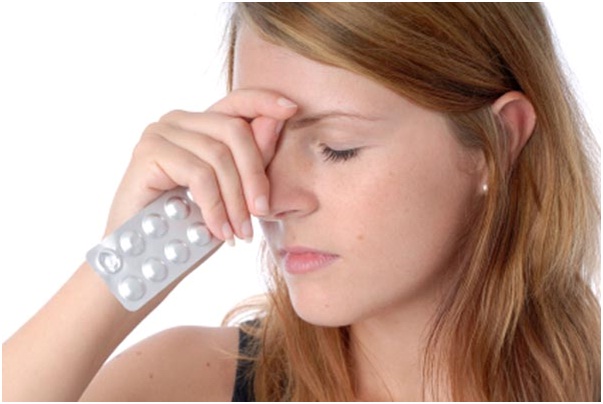Health A - ZR
Rebound Headaches Causes, Symptoms, Diagnosis and Treatment

What Are Rebound Headaches?
Also known as medication overuse headache (MOH), rebound headache usually occurs when analgesics are taken frequently to relieve headaches.
Rebound headaches frequently occur daily, can be very painful and are a common cause of chronic daily headache.
They typically occur in patients with an underlying headache disorder such as migraine or tension-type headache.
Causes Of Rebound Headaches:
Rebound headaches are known to occur with frequent use of many different medications, which may include:
- Simple pain relievers.
- Aspirin
- acetaminophen (Tylenol, others)
- Combination pain relievers.
- Over-the-counter (OTC) pain relievers that combine caffeine, aspirin and acetaminophen (Excedrin, others)
- Butalbital-containing compounds
- Migraine medications.
- triptans (Imitrex, Zomig, others)
- certain ergots
- Ergotamine (Ergomar, others).
Symptoms Of Rebound Headaches
Common symptoms include:
- Occur every day or nearly every day, often waking you in the early morning
- Improve with pain relief medication but then return as your medication wears off
- Nausea
- Listlessness
- Restlessness and difficulty concentrating
- Memory problems
- Irritability
Diagnosis Of Rebound Headaches:
The diagnosis of rebound headache usually is based on a history of chronic headache and frequent use of medication. Testing usually isn’t necessary.
Treatmnet Of Rebound Headaches:
The following treatment options are available:
- Medications
- A tricyclic antidepressant such as:
- amitriptyline
- nortriptyline (Pamelor)
- An anticonvulsant such as:
- divalproex (Depakote),
- topiramate (Topamax, Qudexy XR, Trokendi XR)
- or gabapentin (Gralise, Neurontin)
- A beta blocker such as:
- propranolol (Inderal, Innopran XL)
- A calcium channel blocker, such as :
- verapamil (Calan, Verelan, others)
- Hospitalization
- Cognitive behavioral therapy
By : Natural Health News




